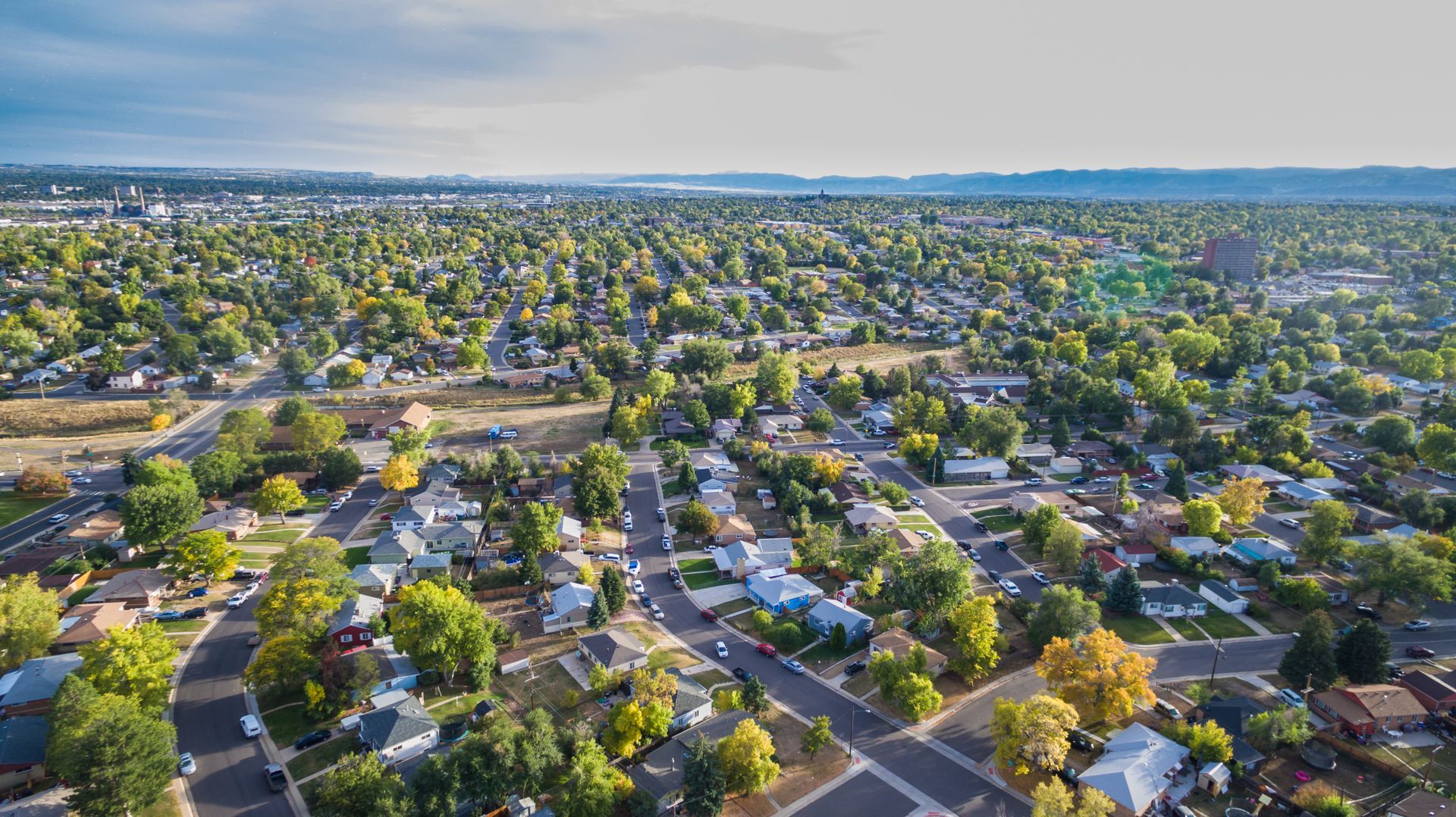Don't Call Christina Later, Call Christina Now
Follow us
Where Do Most Car Accidents Happen?
Car accidents can happen anywhere, but some areas are more prone to accidents than others. Knowing where accidents occur most frequently can help you stay more vigilant while driving, improve your safety habits, and even take steps to prevent accidents in high-risk areas. In this blog, we’ll explore the common locations where car accidents happen, the factors that make these places more dangerous, and tips to help reduce your risk.
Near Home: The Most Common Location for Accidents
It may surprise you, but most accidents happen close to home. According to the National Highway Traffic Safety Administration (NHTSA), the majority of fatal accidents occur within 25 miles of the victim’s home. This is primarily because people tend to drive in their local areas more frequently, which increases the likelihood of an accident.
In neighborhoods or local streets, drivers may be more relaxed, but accidents are often caused by common mistakes like failing to yield the right of way or speeding in residential zones.
Tip: Always stay alert, even when driving in familiar areas. Many accidents near homes are low-speed collisions, but they can still result in serious injuries.

Near Home: The Most Common Location for Accidents
It may surprise you, but most accidents happen close to home. According to the National Highway Traffic Safety Administration (NHTSA), the majority of fatal accidents occur within 25 miles of the victim’s home. This is primarily because people tend to drive in their local areas more frequently, which increases the likelihood of an accident.
In neighborhoods or local streets, drivers may be more relaxed, but accidents are often caused by common mistakes like failing to yield the right of way or speeding in residential zones.
Tip: Always stay alert, even when driving in familiar areas. Many accidents near homes are low-speed collisions, but they can still result in serious injuries.
Near Home: The Most Common Location for Accidents
It may surprise you, but most accidents happen close to home. According to the National Highway Traffic Safety Administration (NHTSA), the majority of fatal accidents occur within 25 miles of the victim’s home. This is primarily because people tend to drive in their local areas more frequently, which increases the likelihood of an accident.
In neighborhoods or local streets, drivers may be more relaxed, but accidents are often caused by common mistakes like failing to yield the right of way or speeding in residential zones.
Tip: Always stay alert, even when driving in familiar areas. Many accidents near homes are low-speed collisions, but they can still result in serious injuries.
Rural Roads: A Higher Risk of Fatal Accidents
Rural roads are another area where accidents are more common than you might think. In fact, over 50% of fatal accidents occur on rural roads, according to NHTSA. While these roads tend to have less traffic than urban areas, the higher speed limits and lack of police patrols make them more dangerous. Poorly maintained roads, unexpected curves, and limited lighting can also contribute to accidents.
When driving on rural roads, pay extra attention to road conditions and always follow the speed limit. If you’re traveling on a two-lane road, be extra cautious when overtaking other vehicles, as visibility can be poor, and you may not be able to see oncoming traffic.
Tip: Drive slower in rural areas, especially during bad weather or nighttime driving.
Intersections: Where Collisions Are Common
Intersections are one of the most dangerous places on the road. In fact, according to the Insurance Institute for Highway Safety (IIHS), over 50% of all car accidents occur at intersections. Intersections require drivers to make decisions about whether to yield or stop, and these split-second decisions often lead to accidents.
Common Causes of Intersection Accidents:
- Failing to yield at stop signs or traffic lights.
- Turning left without checking for oncoming traffic.
- Running a red light or speeding.
- Distracted driving or rushing through intersections.
Tip: When approaching an intersection, slow down and be extra cautious. Pay attention to other drivers, pedestrians, and cyclists. Always ensure that the intersection is clear before making turns, and never assume that other drivers will obey the rules.
Intersections: Where Collisions Are Common
Intersections are one of the most dangerous places on the road. In fact, according to the Insurance Institute for Highway Safety (IIHS), over 50% of all car accidents occur at intersections. Intersections require drivers to make decisions about whether to yield or stop, and these split-second decisions often lead to accidents.
Common Causes of Intersection Accidents:
- Failing to yield at stop signs or traffic lights.
- Turning left without checking for oncoming traffic.
- Running a red light or speeding.
- Distracted driving or rushing through intersections.
Tip: When approaching an intersection, slow down and be extra cautious. Pay attention to other drivers, pedestrians, and cyclists. Always ensure that the intersection is clear before making turns, and never assume that other drivers will obey the rules.
Parking Lots: Often Overlooked, But Hazardous
While parking lots may seem like low-risk areas, they actually see a significant number of accidents. According to the National Safety Council (NSC), approximately 20% of all car accidents happen in parking lots or garages. In these crowded spaces, drivers are often distracted or not paying attention to pedestrians or other vehicles. It’s easy to rush into parking spots or make hasty turns, which can lead to accidents.
Accidents in parking lots often involve one vehicle hitting another vehicle or a pedestrian being struck while walking to or from their car.
Tip: Take your time when parking and always keep an eye out for pedestrians, cyclists, and other vehicles. Avoid rushing to find a spot or turning too quickly.
Highways: A Leading Cause of Serious Injuries
Highways and freeways are fast-paced environments, and although the speeds are higher, accidents can be just as serious as those in other locations. Rear-end collisions, side impacts, and rollovers are more common on highways due to high speeds and heavy traffic. On highways, crashes can be more severe because of the speed at which drivers are traveling, leading to catastrophic injuries.
Tip: Keep a safe distance from the vehicle in front of you, use your mirrors to check for blind spots, and stay aware of your surroundings. Always signal when changing lanes or merging onto highways to avoid sudden accidents.
Highways: A Leading Cause of Serious Injuries
Highways and freeways are fast-paced environments, and although the speeds are higher, accidents can be just as serious as those in other locations. Rear-end collisions, side impacts, and rollovers are more common on highways due to high speeds and heavy traffic. On highways, crashes can be more severe because of the speed at which drivers are traveling, leading to catastrophic injuries.
Tip: Keep a safe distance from the vehicle in front of you, use your mirrors to check for blind spots, and stay aware of your surroundings. Always signal when changing lanes or merging onto highways to avoid sudden accidents.
What You Can Do to Prevent Accidents in These High-Risk Areas
While some accidents are unavoidable, there are precautions you can take to reduce your risk, no matter where you’re driving.
Tips for Accident Prevention:
- Use your seatbelt every time you get in the car, even for short trips.
- Stay focused and avoid distractions, especially in high-risk areas like intersections and parking lots.
- Obey the speed limit and be mindful of the road conditions.
- Keep a safe following distance, especially on highways and rural roads.
- Drive defensively by anticipating the actions of other drivers, especially in busy intersections or parking lots.
Car accidents can happen anywhere, but understanding where they’re most likely to occur is crucial for staying safe. Neighborhoods, rural roads, intersections, parking lots, and highways are all places that see a higher number of crashes. Knowing this information allows you to adjust your driving habits and be more aware of potential hazards, which can ultimately help you avoid accidents and stay safer on the road.
If you or a loved one is involved in a car accident, don’t hesitate to reach out for help. Consulting with an experienced car accident lawyer can provide valuable insight into your rights and options, allowing you to get the compensation you deserve. Stay safe and always be mindful of the risks when driving.
If you’ve been in a car accident, contact us today for a consultation and learn more about how you can navigate the next steps. Share this blog with friends and family to spread awareness about the importance of road safety.
Quick & Reliable
We are available 24/7 to Guide You to Better Health.
CALL CHRISTINA NOW is here to help 24 hours a day, 7 days a week, offering free and compassionate support. When you call us, we'll listen to your concerns, understand the specifics of your accident, help you find medical care for your injuries, and connect you with a professional who can advise you on the legal aspects of your situation.
CALL CHRISTINA NOW specializes in assisting with Lawyer and Medical Accident matters. If you've been in a car, motorcycle, or truck accident—or any other kind of accident—contact us today for trustworthy support.
DISCLAIMER:
CALL CHISTINA NOW isn't a law firm and can't provide legal advice, but we can refer you to the right attorney who can.

When Life Happens! Call Christina Now!
All Rights Reserved | Call Christina Now
Copyright © Call Christina Now Offers All Rights Reserved 2025
View Our Privacy Policy | Terms & Conditions | Disclaimer